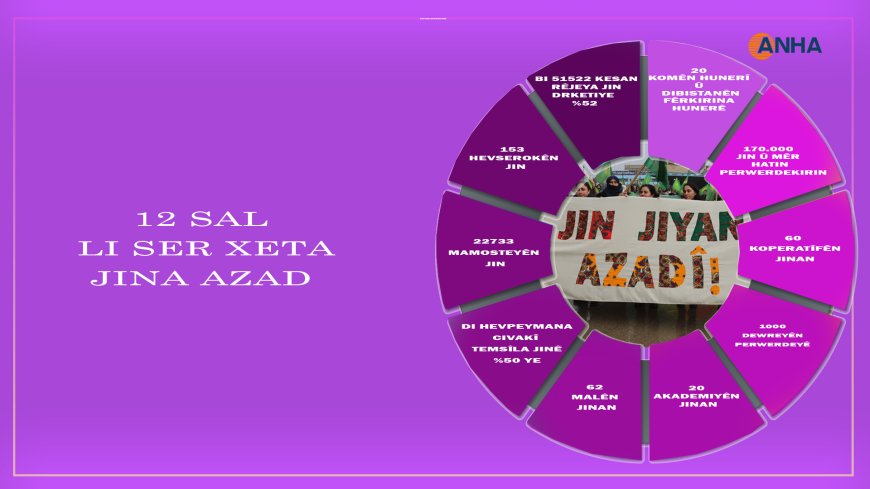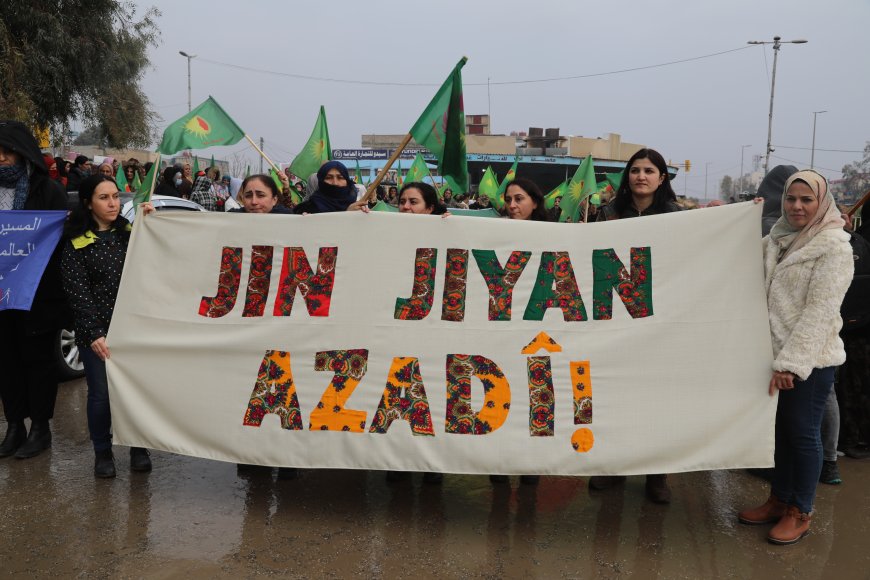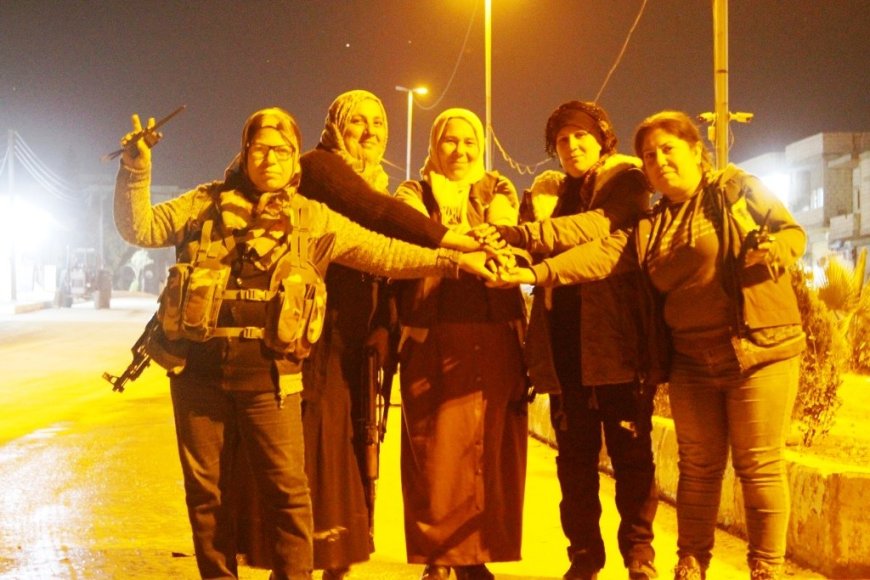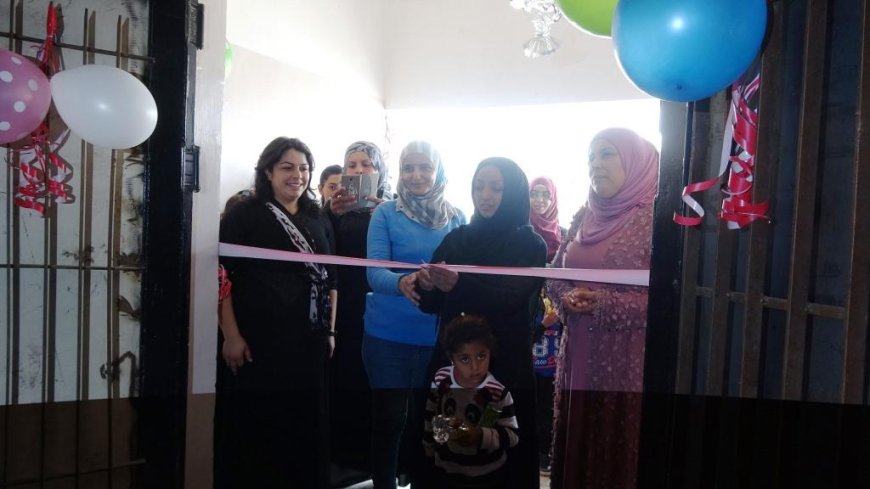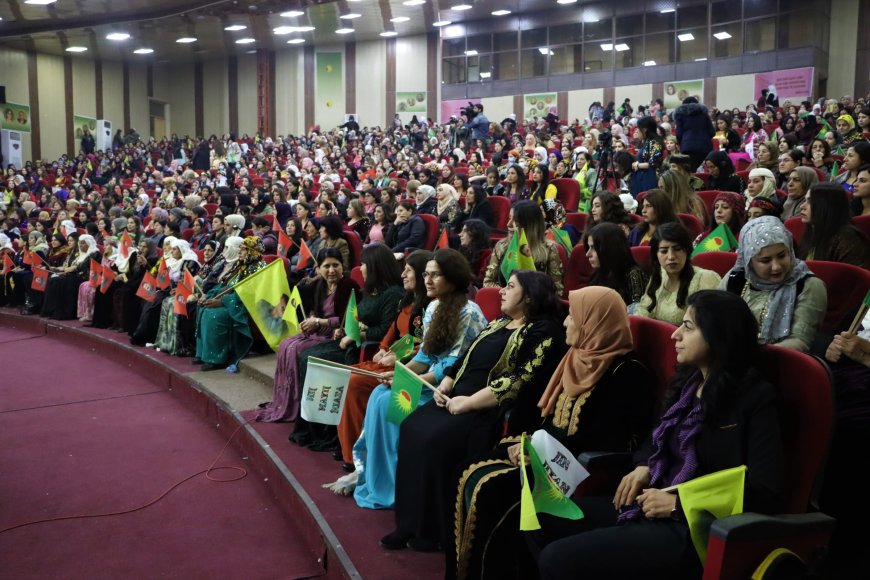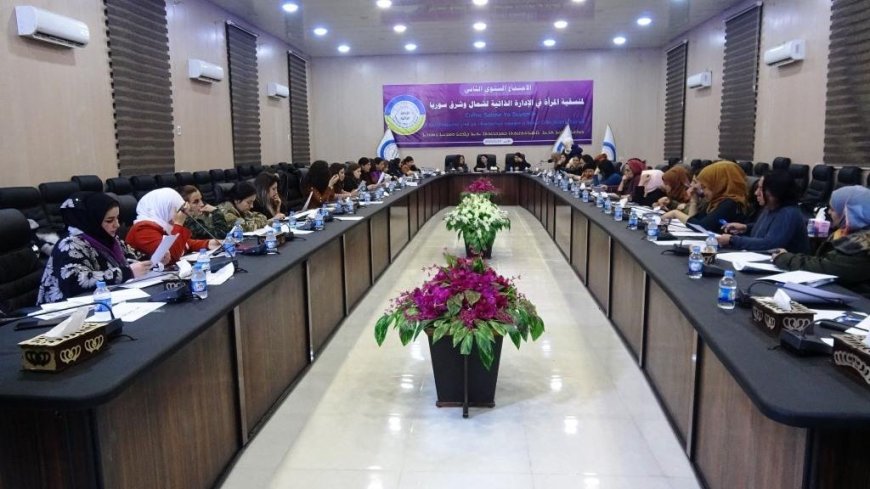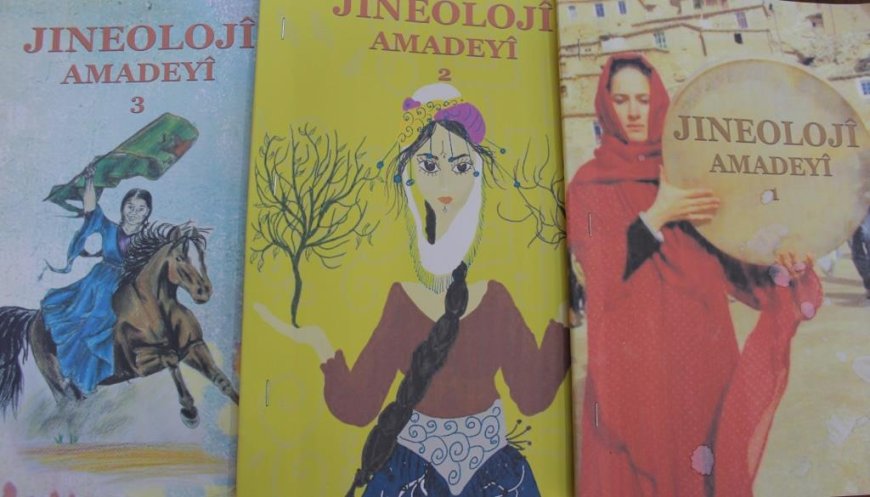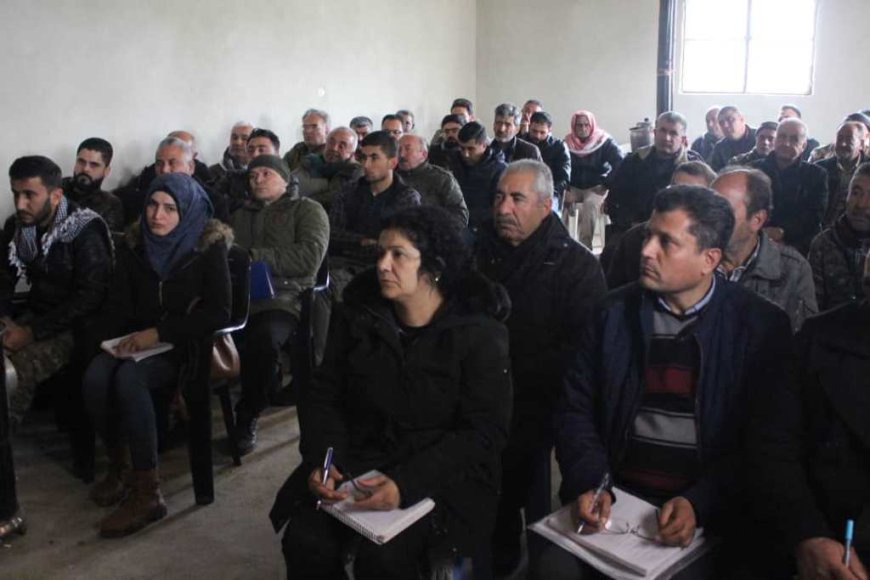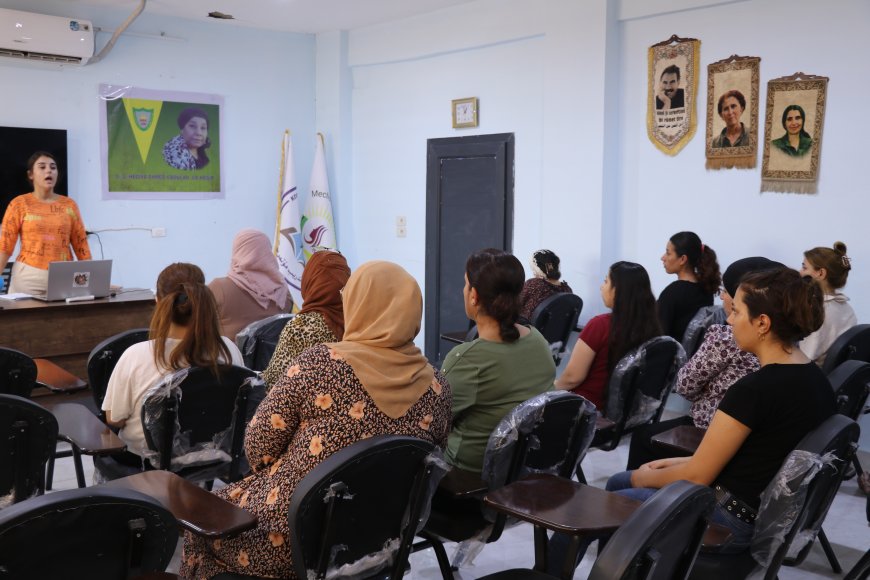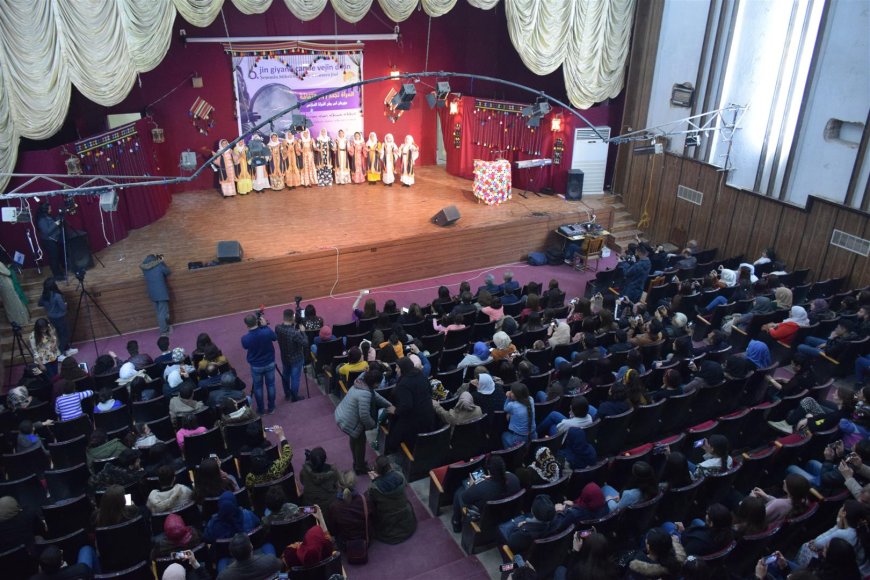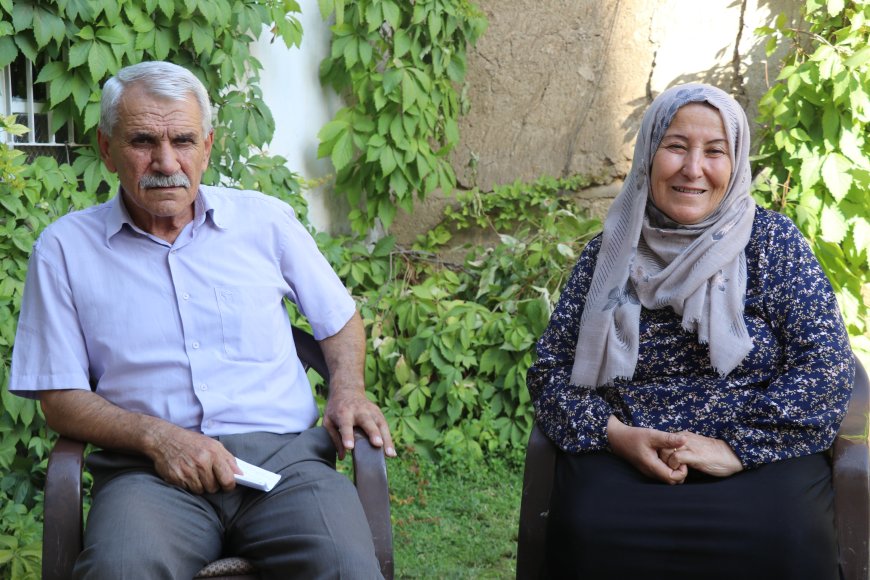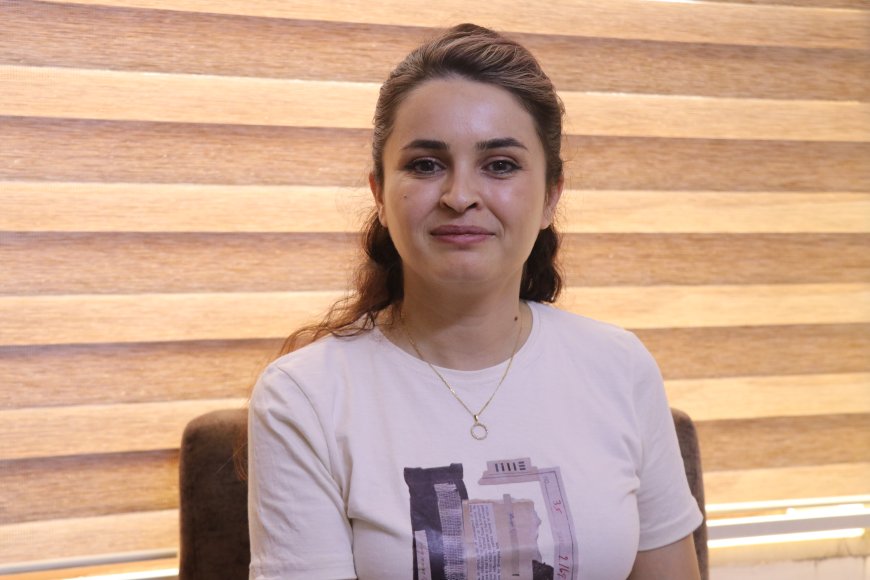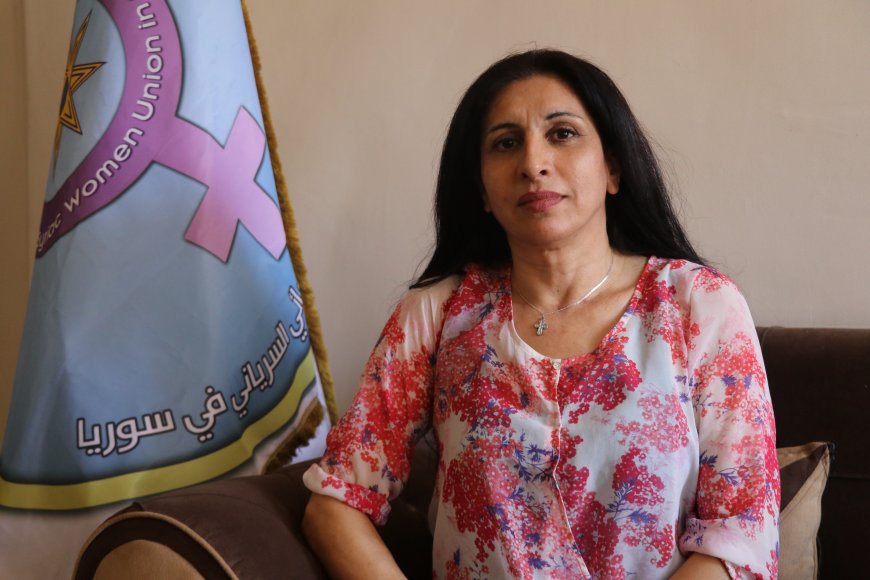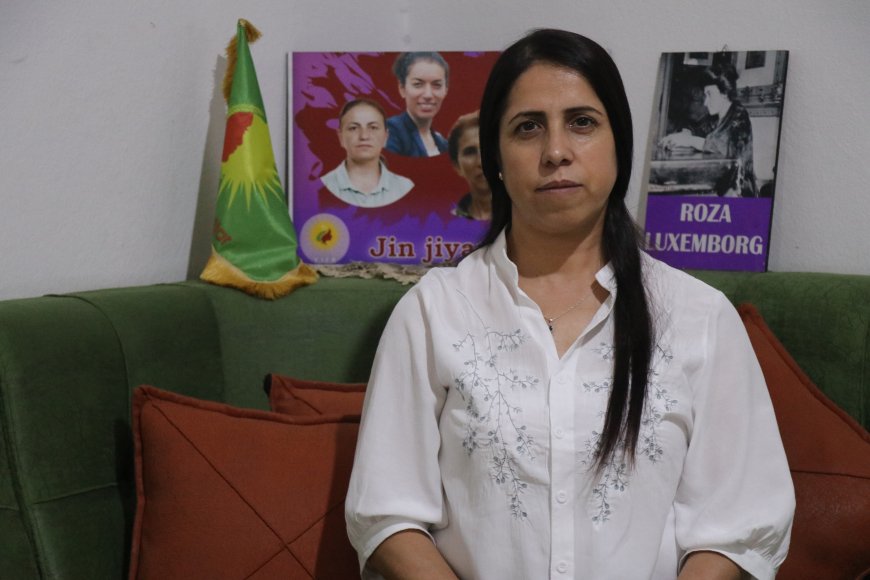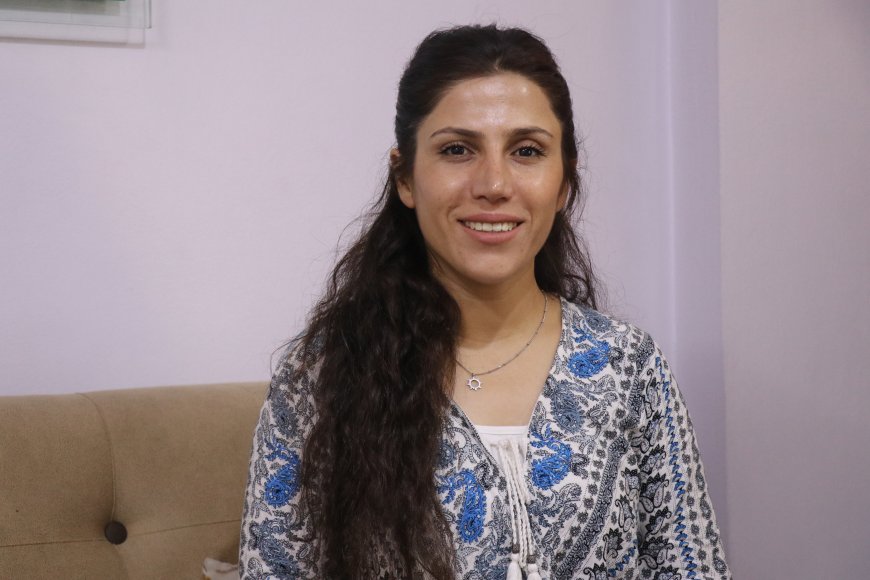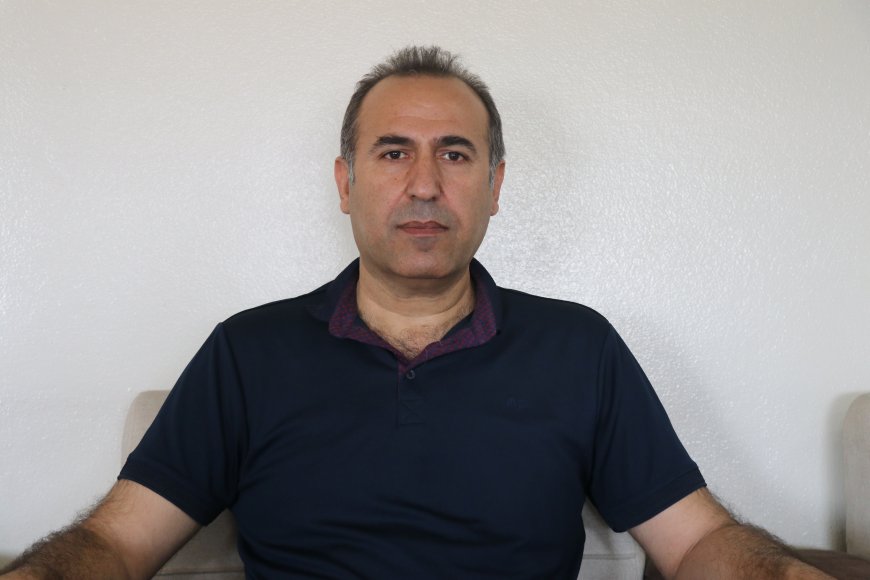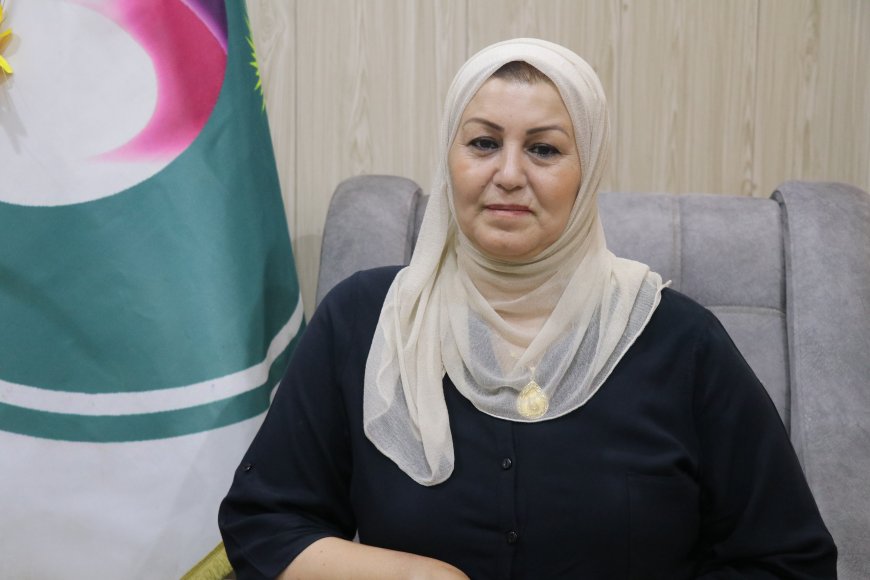Free Feminist Struggle in NE Syria during twelve years
During 12 years of July 19 revolution, the woman who led the revolution established a society based on the free women’s approach in all areas of life, as nearly 170,000 males and females have been trained within the past 7 years.
On the 12th anniversary of the July 19 Revolution, Organizing of the community according to the Free Women approach has reached a higher level.
The women who led the revolution that resonated throughout the world are fighting the mentality of male domination, in addition to training society according to this approach, or in other words, reviving the slogan “Women, Life, Freedom”.
After the July 19 revolution. On April 4, 2013, the Women’s Protection Units (YPJ) were formed, YPJ fought in a lot of battles, and the echo of women’s resistance, especially the resistance of Kobani, in 2014, the Internal Security Forces - Women were formed, Over the course of 12 years, the Community Protection Forces - Women (HPC-Jin) were also formed. Furthermore, women join the ranks of the People’s Protection Units (YPG) and the Syrian Democratic Forces (SDF) and participated in all campaigns to liberate the regions of NE Syria, including Afrin, Manbij, Kobani, Tabqa, Raqqa, Deir ez-Zor, Girê Spi, Serêkaniyê, Hasaka, Amuda, Ad-Darbasiyah, Qamishlo, Girkê Legê, Derik, and Şengal in Southern Kurdistan.
Women have also done great work against the mentality of male domination and violence from 2011 until now, 62 women’s centers have been established in NE Syria through which women’s rights are protected, and the struggle over these years has resulted in the spread of the concept of self-protection in society.
Women's organization
In 2005, the Star Union was formed, which changed its name, specifically in its 6th conference in 2016, to Kongra Star. Currently, it works for women’s activities (training, culture, art, economics, protection).
In addition to Kongra Star, many women's organizations were established in NE Syria, including; Women's Council in North and East Syria (2019), Syrian Women's Council (2017), Women's Coordination in Autonomous Administration, Zenobia Women's Gathering (2021), Syriac Women's Union, Yazidi Women's Union in Rojava, Women's Council of the Democratic Union Party, Women's Council In the Future Syria Party, the Women’s Office in the Syrian Democratic Council, the Women’s Office in the Democratic Society Movement, the Center for Research and Protection of Women’s Rights, the Sarah Organization for Combating Violence against Women (2013), the Free Syrian Women’s Endowment, the Armenian Women’s Union (2022), as for women within the institutions affiliated with the Confederation of Democratic Society Organizations, young women organized themselves within the Young Women’s Union and the Female Students’ Union, as a result the Women’s Media Union (YRJ) was established.
The Member of the Kongra Star Coordination, Ramzia Muhammad, pointed out the spread of the philosophy of “Women, Life, Freedom” in all areas of life.
" Due to the philosophy of leader Ocalan, women were able to play a vital role in all fields, including education, politics, culture, and organization" important steps were taken to overthrow the authoritarian mentality and build the democratic nation” Ramzia Muhammad said
The head of the Syriac Women's Union, Georgette Barsoum, expressed her pride in the achievements of the revolution and said: "We want to unify thought and ways to solve problems in all women's organizations, and to participate in decision-making."
Representation of women in DAA
The preamble to the Social Contract on the role of women in society stated the following:
“The societal revolution opened the way for an intellectual and social renaissance, and women became a fundamental pillar of our democratic system” the Social Contract Preamble of Democratic Autonomous Administration (DAA).
Article 24 of the Social Contract stipulates: “The DAA adopts the system of joint presidency in all political, social, administrative and other fields, and considers it a basic principle in equal representation between the two genders."
“The percentage of women’s representation in all councils is 50 percent (Article Seven). Women represent themselves in all popular councils, starting with the commune, the town, the city, the Canton, and the region NE Syria, (Article Nine).”
According to 2023 data, there are 212 institutions and departments under the umbrella of the Autonomous Administration (Body, district, directorate, office, council, etc.), and these institutions, some of which are headed by 153 co-chairs.
In addition to the joint presidency, the percentage of women’s representation in the People’s Assembly and the Executive Council of North and East Syria is 50 percent, and the number of employees in the DAA institutions and bodies is 97,863 people, including 51,522 women. According to these figures, the percentage of women’s representation is 52 percent.
“Today, women from all components are involved in the DAA, they are decision makers, they participate in enacting and implementing laws, as the percentage of women’s representation is 50 percent" the Co- chair of the Women’s Body in Jazera Canton, Howaida Muhammad explained.
Women's education and society
Education is one of the most important areas in women's struggle, especially since education provides the possibility of eliminating the patriarchal mentality and reviving the approach to women's freedom.
Materials and curricula
The educational programs and materials are based on Jineology and in this context lectures and seminars are organized on issues such as “genderism, women’s history, sexism by society, free coexistence, the real order, the project to change men, culture and ethics, natural society, how to live, monotheistic religions, democratic nation, genocide, self-protection.”
Training 170,000 women and men
20 academies were opened to train the community and prepare teachers and curricula in various regions of the region.
Between 2017 and 2024, more than 700 training courses were opened to prepare teachers, during which 22,733 female teachers were qualified, in addition to training 120,000 women in the samed period.
“During training, we search for an answer to the question, ‘Who am I?’ And then we know the extent of the contradictions we live in, today I see life from a different perspective" Rayhan Tammo said.
The training activities included communes, councils, municipalities, internal security forces, kindergartens and women’s homes, and the outcome of the lessons, seminars and lectures presented in the above-mentioned points over the past 7 years amounted to 2,595 courses, lectures and seminars, during which 20,248 women, young women and girls were trained.
Jineology is considered a major subject in the field of training in Shahba, Aleppo, Kobani, Manbij, Tabqa, Hasaka and Derik, in 2017, the University of Rojava in Qamishlo, a special department for jurisprudence was opened and the duration of study there is 4 years.
In addition to universities, lectures on Jînology are organized in all academies, communes, councils and institutions in the region. In this context, during the years 2022-2023, 807 lectures and seminars were organized, attended by 27 thousand people.
Masoud Youssef, who enrolled in a training course held at the Shahid Shibli Academy in 2013, says: “We live in the Middle East, so whether we want it or not, the male mentality is prevalent in societies, but training and awareness will achieve freedom and equality.”
The couple, Hanifa Muhammad and Sami Ali, who have been married since 1980, during the revolution, enrolled in many training courses, and many changes occurred in their lives.
In this context, Hanifa Muhammad says: “Our way of thinking and living has changed a lot. We now make decisions together and take each other’s opinions, and we can say that we have achieved a kind of equality in our lives.”
Sami Ali said: “My personality changed a lot after attending 4 courses, and today I seek to act accordingly.”
Women's justice
One of the prominent areas in women’s struggle is also the judicial system. In 2016, the Women’s Social Justice Council was established, including the Women's House, Court of Justice,and Conciliation Committee."
The academy explains the judicial system and trains those concerned in this field, including (judges, public prosecutors, lawyers, council administrators and the role of women).
The percentage of women’s representation in the public judicial system in NE Syria was 50 percent.
Files of family disputes, violence, rights violations, etc. are most often referred to the 62 women’s homes and are resolved there, and 9 institutions have been opened to protect women who are exposed to violence and injustice and whose lives are in danger.
Community and cooperative economics for women
The Article 19 of the Social Contract stipulates: “ The DAA shall develop the societal economy for women, and oppose all types of exploitation of women.”
In accordance with this article, work is being done to build the women’s economy and its system, as 60 cooperative societies have been opened throughout the regions of NE Syria, specializing in agriculture, livestock raising, sewing and clothing, furniture, restaurants, agricultural fields, candy stores, and a canning factory.
Culture and art
Cultural activities are organized in public institutions as well as women's institutions. The writers and poets have gathered under the umbrella of the Intellectual Women's Association.
As for artistic works, such as music, theater,dance and drawing, they are organized under the umbrella of the Hilal Zerin Movement for Women’s Culture, which was established in 2016, as well as opening the Martyr Noila School for Fine in 2020, that trains the children under age 18 years.
Under the umbrella of Hilal Zerin, 20 bands for music, theatre, dance and drawing were established, including 4 teams for children, Hilal Zerin bands participate in reviving all programmes, celebrations, festivals and annuals of NE Syria.
The Hilal Zerin Women’s Culture Movement, in cooperation with the Mesopotamia Movement for Culture and Art and the Barkin Endowment for Culture and Art, launched the famous musical film “Songs of the Red Braid,” which highlights the resistance of Kurdish women.
The Hilal Zerin Movement and the Educated Women’s Association organize an annual festival called the Women’s Literature and Art Festival, The Young Women’s Festival has also been organized since 2020 and the Children’s Dance Festival has been organized since 2021.
Environment
During the year 2022, the Women’s Ecological Platform was established, and the platform is working to expand its organization and launched a tree planting campaign on the birth of leader Abdullah Ocalan, April 4, that planted 75 tree plants in every town.
Berivan Omar, the director of the Women's Environmental Platform revealed their intention to transform the platform into a council, and prepare an internal system aims to spread ecological awareness in society.
a.k
ANHA

